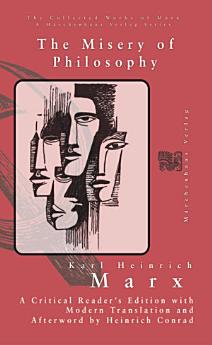The Misery of Philosophy
Acerca de este libro electrónico
Rather than addressing philosophical errors alone, Marx focuses on the economic categories themselves—value, exchange, division of labor—arguing that Proudhon abstracts them from their historical development and disguises the relations of exploitation at their core. The text elaborates Marx’s emerging labor theory of value, defends the necessity of revolutionary upheaval over reformist utopianism, and begins to frame class struggle as the motor of history. Though the German translation was not published until 1884 in Stuttgart, the original version marks a turning point where Marx establishes a clear theoretical distance from earlier socialist thinkers, refusing moral appeals or idealist schemas in favor of a method grounded in material relations and political confrontation.
This modern Critical Reader’s Edition includes an illuminating afterword tracing Marx’s intellectual relationships with revolutionary thinkers and philosophers (including Hegel, Feuerbach, Engels, and Ricardo), containing unique research into his ideological development and economic-metaphysical theories, a comprehensive timeline of his life and works, a glossary of Marxist terminology, and a detailed index of all of Marx’s writings. This professional translation renders Marx’s dense, dialectical prose into modern language to preserve the original force and precision of the text. Combined with the scholarly amplifying material, this edition is an indispensable exploration of Marx’s classic works and his enduring Hegelian-Protestant influence in the political, religious, economic, and philosophical spheres.










